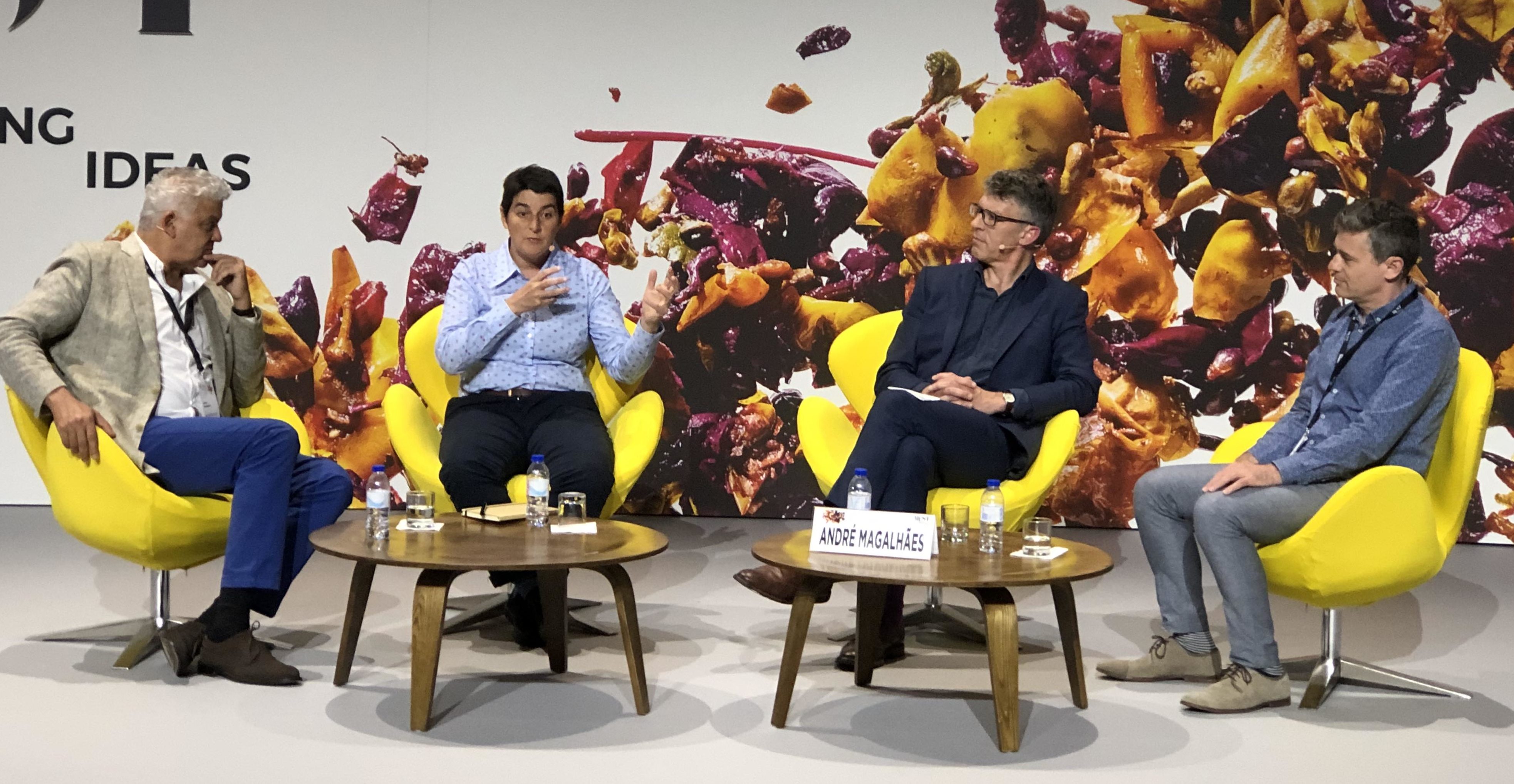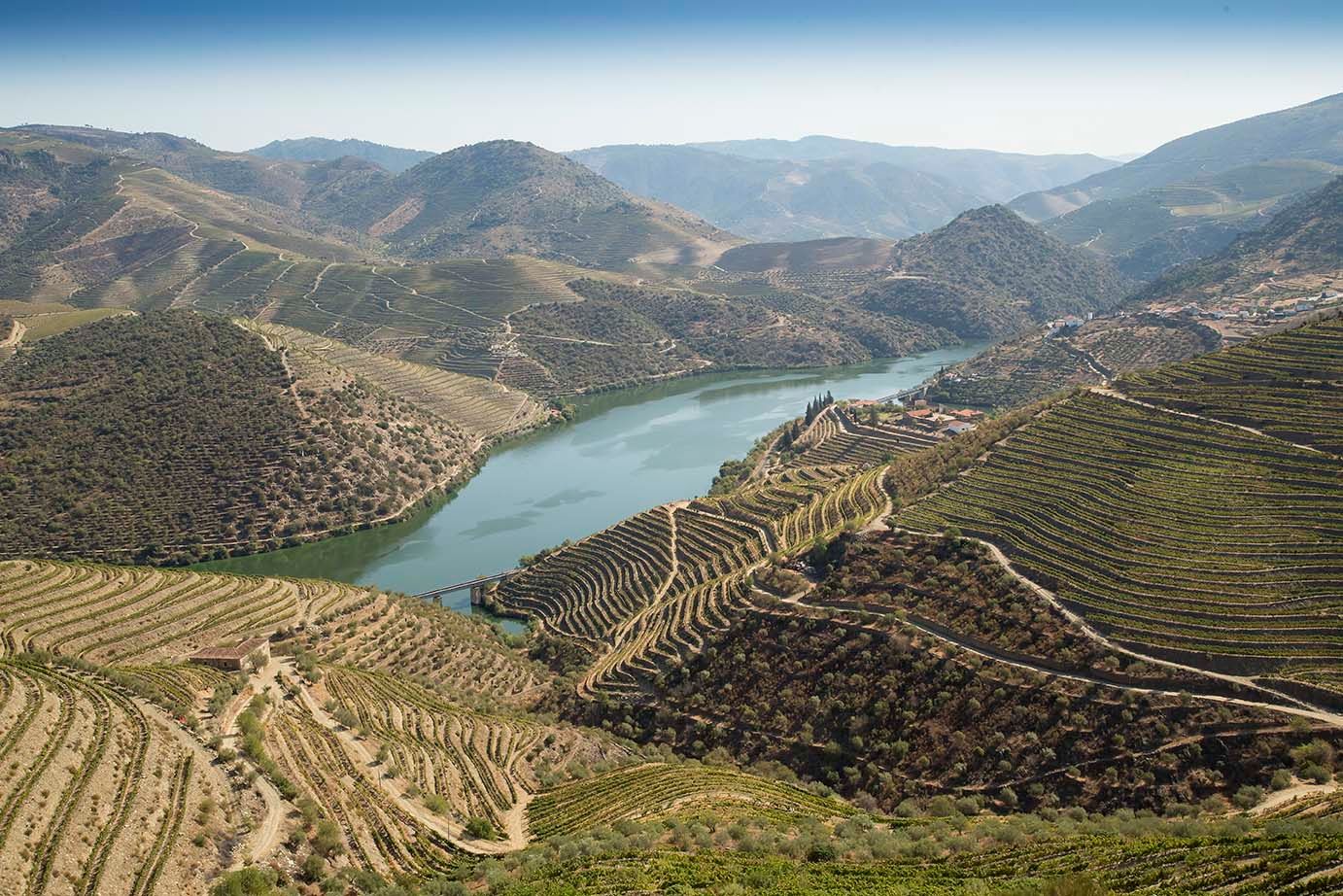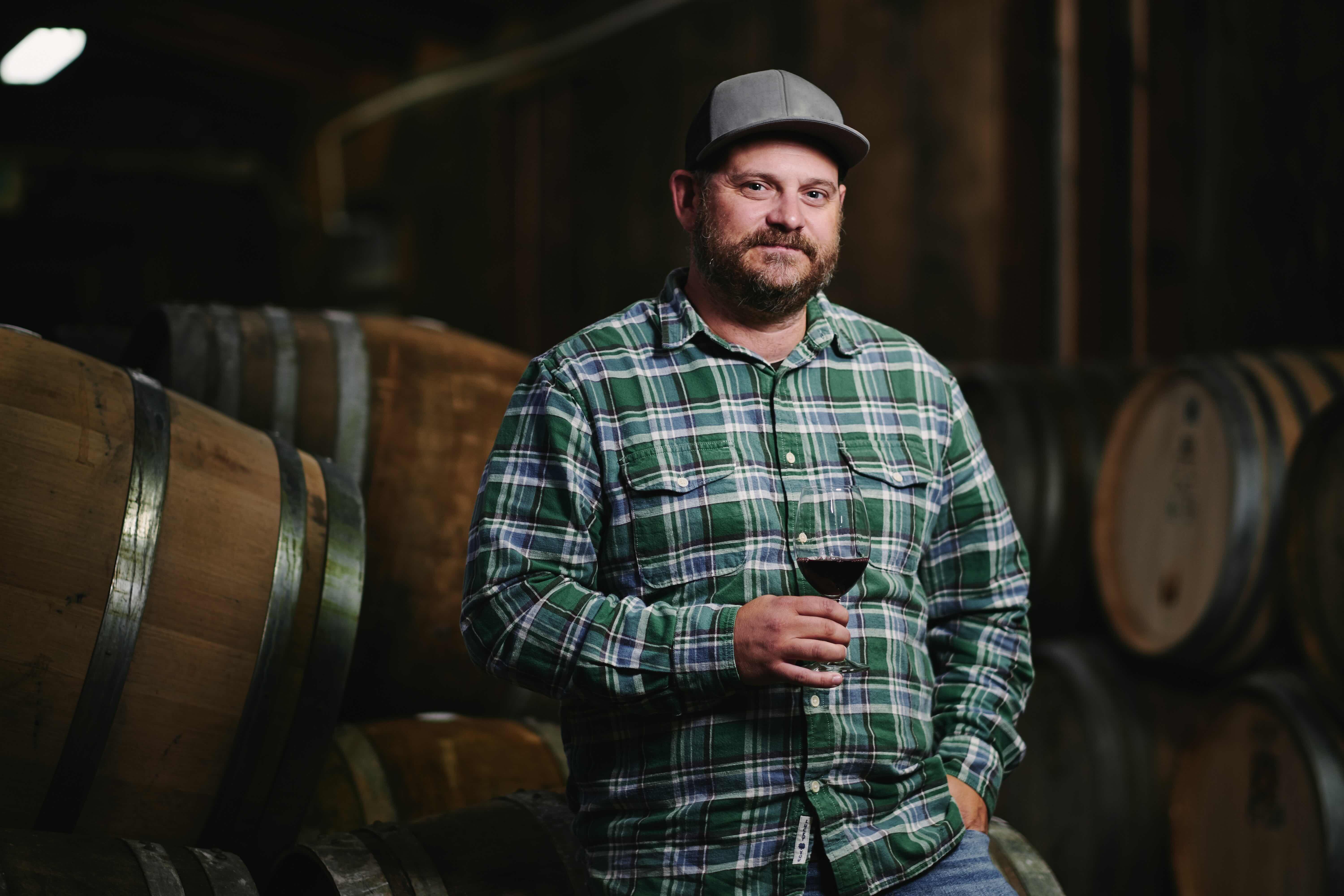Isabelle Legeron MW and Simon Woolf led the debate at MUST Fermenting Ideas on the rise of natural wines and made the case for why they think they are not just the most authentic way to make wine, but the most responsible too.
Every industry has its issues and topics that no matter how often they are debated still polarise opinion and have as many believers as they do distractors.
In the wine industry the biggest divisive issue has to be natural – and orange – wines. On one side you have the evangelists, the pioneers who are doing all they can to eulogise, promote and share all they can about how and why natural wines are such an important and exciting part of the industry.
Then there are those who just don’t get it. In fact the more popular natural and orange wines become, the more opposed the anti-brigade seem to come.
This conflict was very much an undercurrent at last month’s MUST Fermenting Ideas conference in Portugal. But then lively debate and challenging industry issues is what MUST is also all about.
The reason natural wines was such an issue at the conference was so much time was dedicated to. For as well as standalone hour sessions for Simon Woolf and Isabelle Legeron MW to make the case for orange and natural wines respectively, there was a further hour debate on the impact they are making in the industry. Which was, perhaps, one session too many.
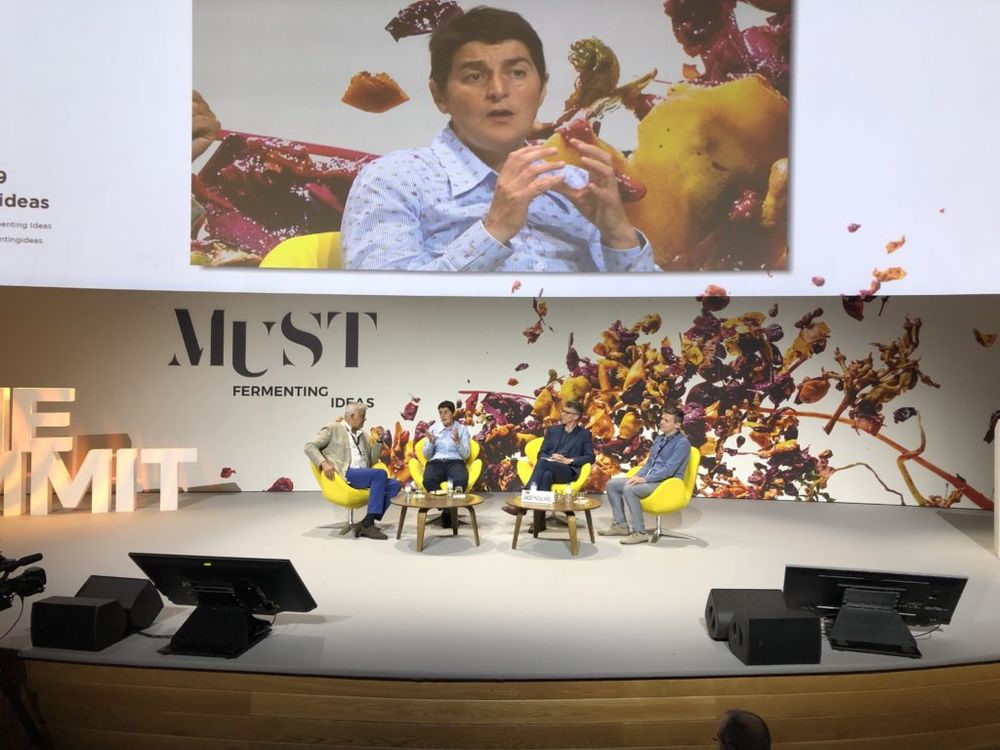
Isabelle Legeron MW believes the wine industry should stop the “bullshit” about how wines are made
Demands attention
Not that they weren’t fascinating talks to listen and take part in. They certainly deserve and demand our attention. Woolf, for example, claimed there is now a healthy orange wine scene in at least 32 wine producing countries, up from 20 last year when he published his breakthrough ‘Amber Revolution’ book on orange wine.
One of the stumbling blocks some more traditional wine trade members have towards natural wine is how it is defined. Even at MUST, Legeron and Woolf had a different way of defining what they meant when they talked about natural wine.
For Legeron natural wine is a “wine that is living” that “is alive” and that “are framed organically at the very least”. Wines that are “100% grape juice”. Woolf takes a more practical view and looks at natural wine as a more of a “winemaking technique and procedure”.
These discrepancies came to the fore during the conference debate on natural wine at MUST. It was noticeable that the Azores winemaker who questioned whether it was OK for another winemaker just to claim their wine is natural, without any proof, was robust enough when classifying the kind of wine they are making, received one of the loudest rounds of applause at the conference.
“Stop the bullshit”
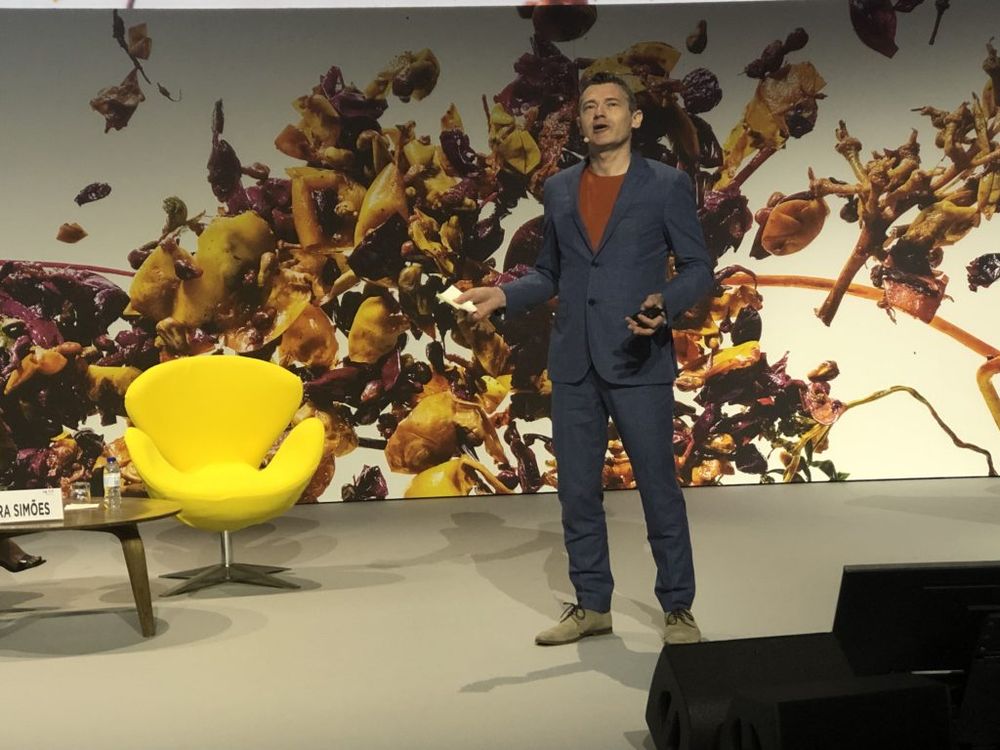
Simon Woolf sees natural wine as being a way of winemaking not a style of wine
Legeron said a lot of the debate around natural wines ends up confusing the issue, when in the end it what really matters is giving “tools to consumers to drink what they want”. She certainly was not out to “tell consumers what they should be drinking”.
But she had a stronger message for the wine industry itself. The time had come for all producers to really question and analyse the kinds of wines they are making. Not just in terms of the style of winemaking, but what is good for the local environment and the planet.
“We need to be taking more responsibly as an industry,” she said. “What is going on in a vineyard, what is going on in a cellar. Our first responsibility is to stop the bullshit that wine is a such a wonderful natural product. We need to be more open and transparent and give consumers the tools to understand.”
She added: “Does it matter what we drink? I think it does. It matters for the health of the planet. We don’t just make wine. We are part of a farming world. We’re not just a bottle of wine that ends up on the bar or table.”
It’s why she believes natural wines are the purest wine a winemaker can make as they truly reflect the place where they are made. “When I taste wine I don’t look for oak, but for the vineyard and texture from the berry and the terroir,” she explained.
But, again, we can get a little too carried away just looking at terroir. “Terroir is a word that has served us well, but which have been used too freely. Terroir is where communication happens, where uptake happens, surrounded by life.”
Similarly she believes “organics is not something to strive for. It is the starting point.”
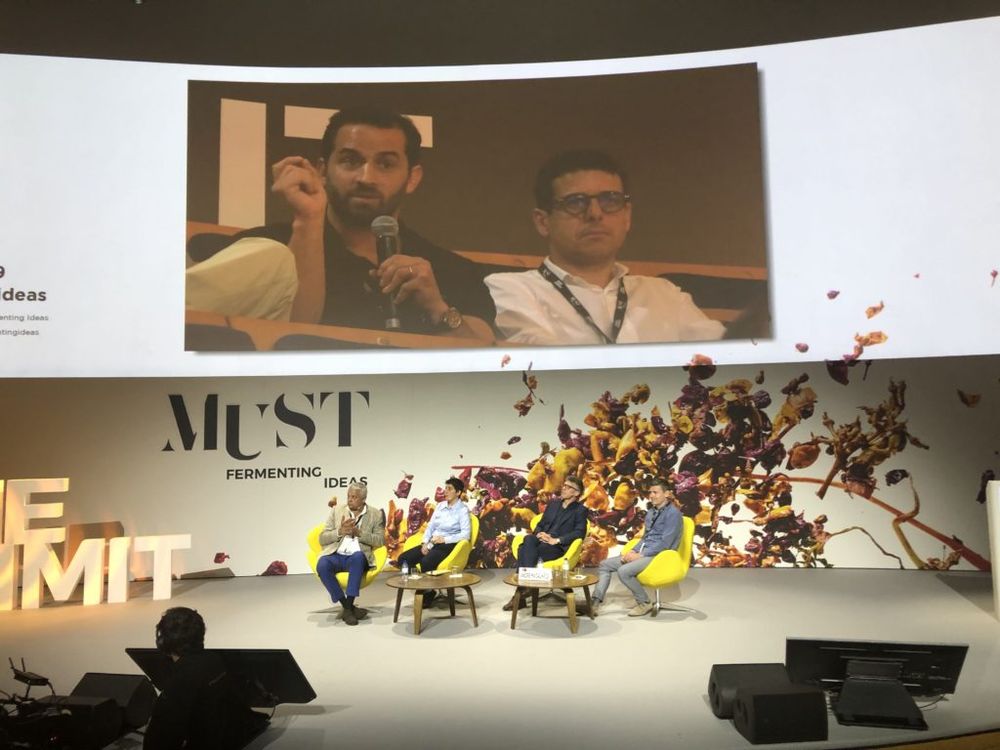
The debate provoked some heated exchanges from winemakers who objected to the idea of their wines somehow being less good for the planet because they were not natural
The industry as a whole has to take up the challenge of how it produces wine. At least if it wants to be serious about tackling climate change and not being responsible for it. “It’s just about making a difference, one bottle at a time,” she said.
Legeron also sees natural winemakers as the big risk takers in the industry. “There are more risks involved in natural wine. You are hoping fermentation will happen. You are taking risks at every step and you don’t have a big tool box to work with.”
Which is probably why there is so much more collaboration and communication amongst natural winemakers both in the same country and around the world, as it is still at such an early stage and everyone can learn from each other.
Consumer power
There was now a large and growing consumer base, stressed Legeron, that had already made their minds up about the kinds of wines they want to drink.
“Times are changing and the consumer is changing. This, in turn, is going to change the wine industry. We as an industry have kept our heads buried in the sand for too long,” claimed Legeron.
“When I created Raw Wine I wasn’t interested in what the wine industry had to say. I bypassed it because I care about what consumers have to say.” She added: “Young consumers don’t want to read tasting notes or look at scores. They want real stories and experiences. The younger consumers don’t care about the intellectualisation of wine.”
Which is why 80% of the audience at her Raw Wine fairs around the world are aged between 25-44. “The younger demographic really cares about what they drink.”
Although she is respectful of what some in the traditional wine industry think about natural wines, it is not going to distract her.
“We’re gaining critical mass, it’s not a fashion anymore. There’s a huge opportunity. Also by championing natural wine, we can have an impact on the environment.”
Coping with “confusion”
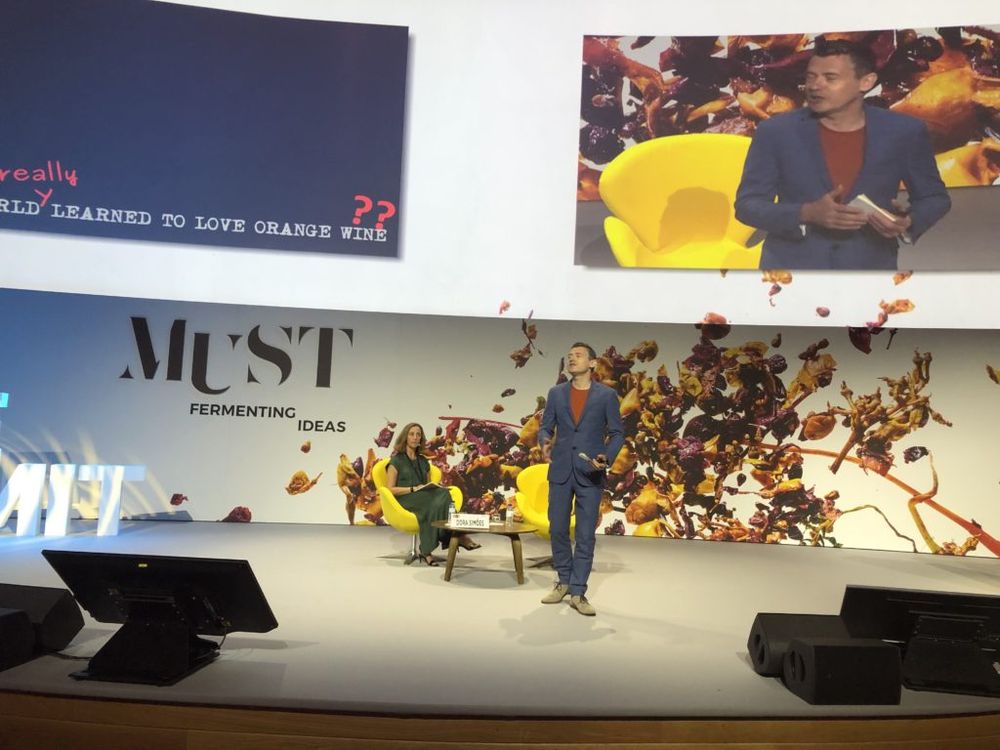
Woolf said there was a lot of “confusion” about what actually is a natural wine
Simon Woolf believes the reason why there is so much “confusion” around natural wine is that people see it as being a certain style of wine. “There are lots of wine fans and sommeliers who think natural wine has to be cloudy. But natural wine is more about how you make it, how you tend the vines. It’s not about the actual style of wine,” he stressed. “Natural wine is a philosophy that governs what you or don’t do in the cellar. It’s not to be confused with a set of stylistics.”
He said he first got into natural wines because “as a wine drinker these wines stood out to me”. “They had so much veracity. Natural wine techniques and philosophies allow you to get this great expression from a vineyard.”
But he also felt the “first duty of a natural winemaker should be to make a good wine, to have balance and elegance in the wine”.
Natural wines, though, will start challenging how we look at traditional and classic wine regions.“Natural wine has confused classic wine styles,” he claimed. We might think Rioja “tastes like vanilla,” but that is “because it is aged in oak barrels”. “Whereas a natural wine would taste like what is going on in the vineyard. Natural wine is pulling back the curtain, if you like, on what wines in certain regions actually taste like.
“We have become used to say wines from Marlborough in New Zealand tasting a certain way, but that is not necessarily what they would taste like if they came straight from the vineyard.”
The reason so many younger drinkers are turning to natural wines is that they offer something new, claimed Woolf. “They are not that hung up about it. The are just looking for something new and different, be it orange or natural wine etc.”
“They don’t care how hip and trendy the winemaker is. They don’t have to have a beard. It is what is in the glass and the fact the wine is made in a respectful way that matters.”
They’re also not the wines their parents are drinking, he added.
Trade first
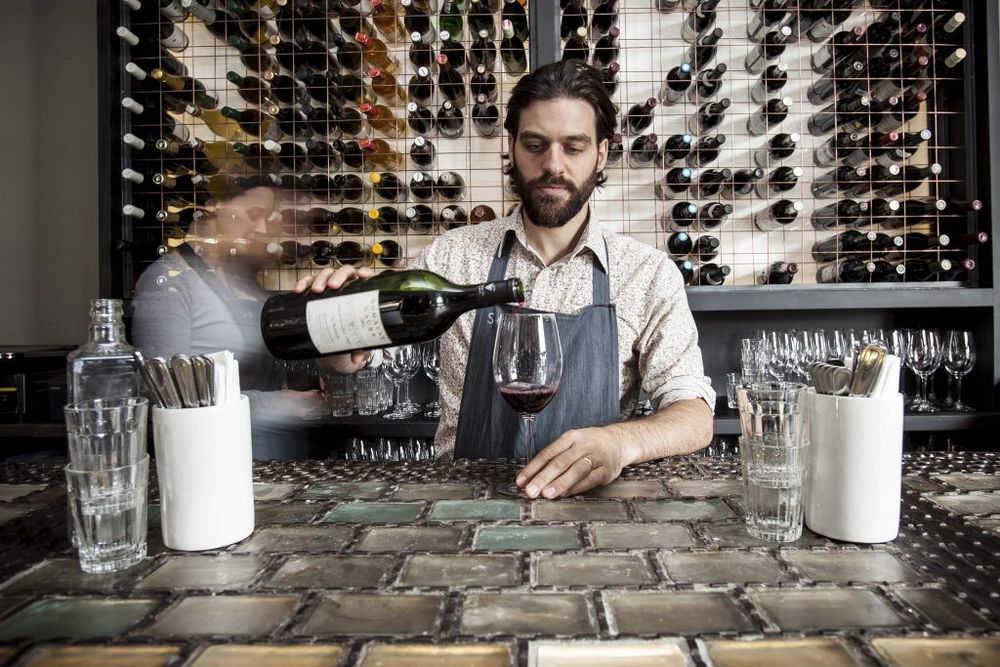
Sager and Wilde is one of the leading bars and restaurants to have helped promote natural and orange wines
Legeron says the premium on-trade and independent merchants have been the perfect partners to help promote and educate wine drinkers about natural wine.
“The natural wine scene has grown a lot from the on-trade,” she said. “A lot of communication is being done by sommeliers, or by the person in a wine merchant. It is up to them to talk about and promote natural wine and how much work has gone into making them. The value of treating each vine like a person, the value of the craft has to be communicated out to customers. The fact these wines are worth what they cost, because they really are.”
It’s also where the environmental message about natural wine is best communicated. “We need to be clearer about that, and when people are aware, they will choose to drink wines that are kinder to the planet.”
But for all the growth and talk about natural wine, Legeron insists we are “only just scratching the surface”. “The vast majority of people don’t really know about natural wine.”
Take a city like Los Angeles that despite people’s obsession with health and fitness the “penny has not dropped about what wine they are putting into their bodies and how they are made,” said Legeron.
Woolf agreed: “If the conscious consumer can see what goes into a wine, they would probably make a different choice about the wines they are buying in the supermarket. Winemakers currently have an open pass.”
He added: “Wine as a whole is presented in very confusing way to consumers. The fact wines are not required to have any ingredients list is extraordinary.”
Legeron questioned why it cost so much more for a producer to move over to organics and pay to be certified, when surely we should be encouraging more people to do so. “Non organic wineries don’t have to go through as many checks. It’s now encouraging sustainable practices.”
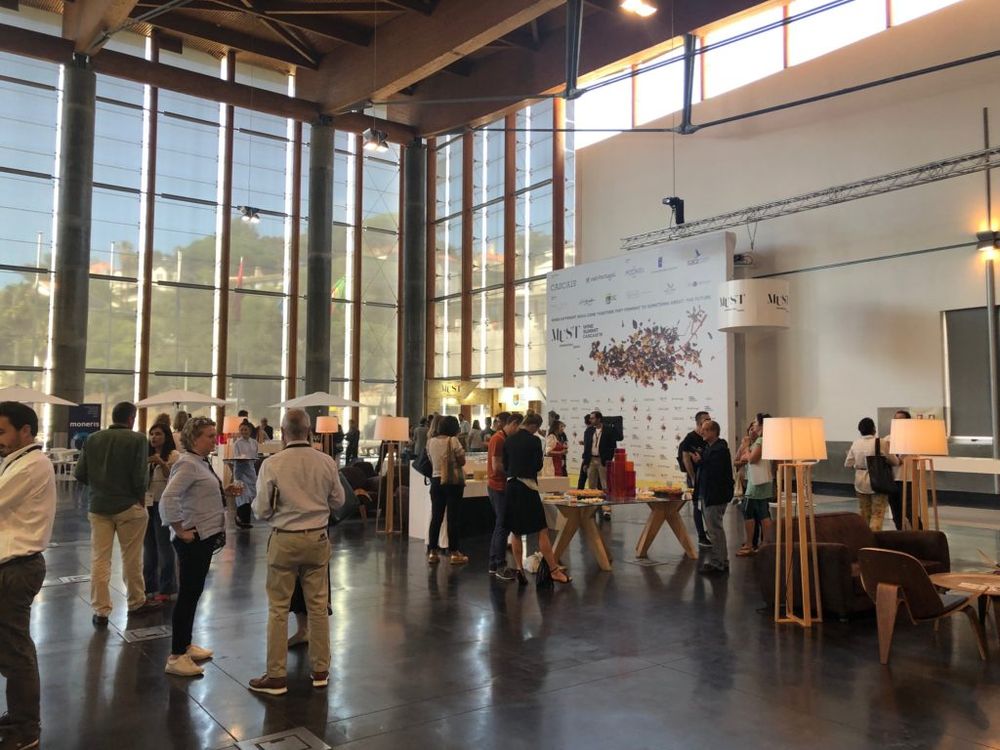
The MUST conference saw as much debate in the breakout areas as there was in the main hall
Greater transparency
Going back to the debate with the Azores winemaker over the transparency within the natural wine world, Woolf said he would welcome “some sort of certification” for natural winemakers. “If anatural winemaker is not willing to share sulphite levels, then we should be asking questions.”
It is here, though, where the natural wine sector starts to rub up against “other” winemakers. The more they claim their wines are pure, ethical and good for the planet, the more it implies all other wines not made “naturally” are somehow bad and not good for the environment. It was clear from the debate at MUST that winemakers in the conference hall were getting increasingly frustrated by the claims that natural wines are somehow more superior, particularly when it came to what impact “other” wines were having on the environment.
Legeron believes it is a debate the industry needs to face up to. Both internally and externally.
“As an industry we need to change the way we work, as we are damaging the planet. Natural, organic, biodynamic all share values and a love of the environment. That is what we need to get across and communicate. They are people who care and want to make a difference.”
- In our next article from the MUST conference we will take a closer look at orange wines and why Simon Woolf thinks the world has “learned how to love orange wine”.
